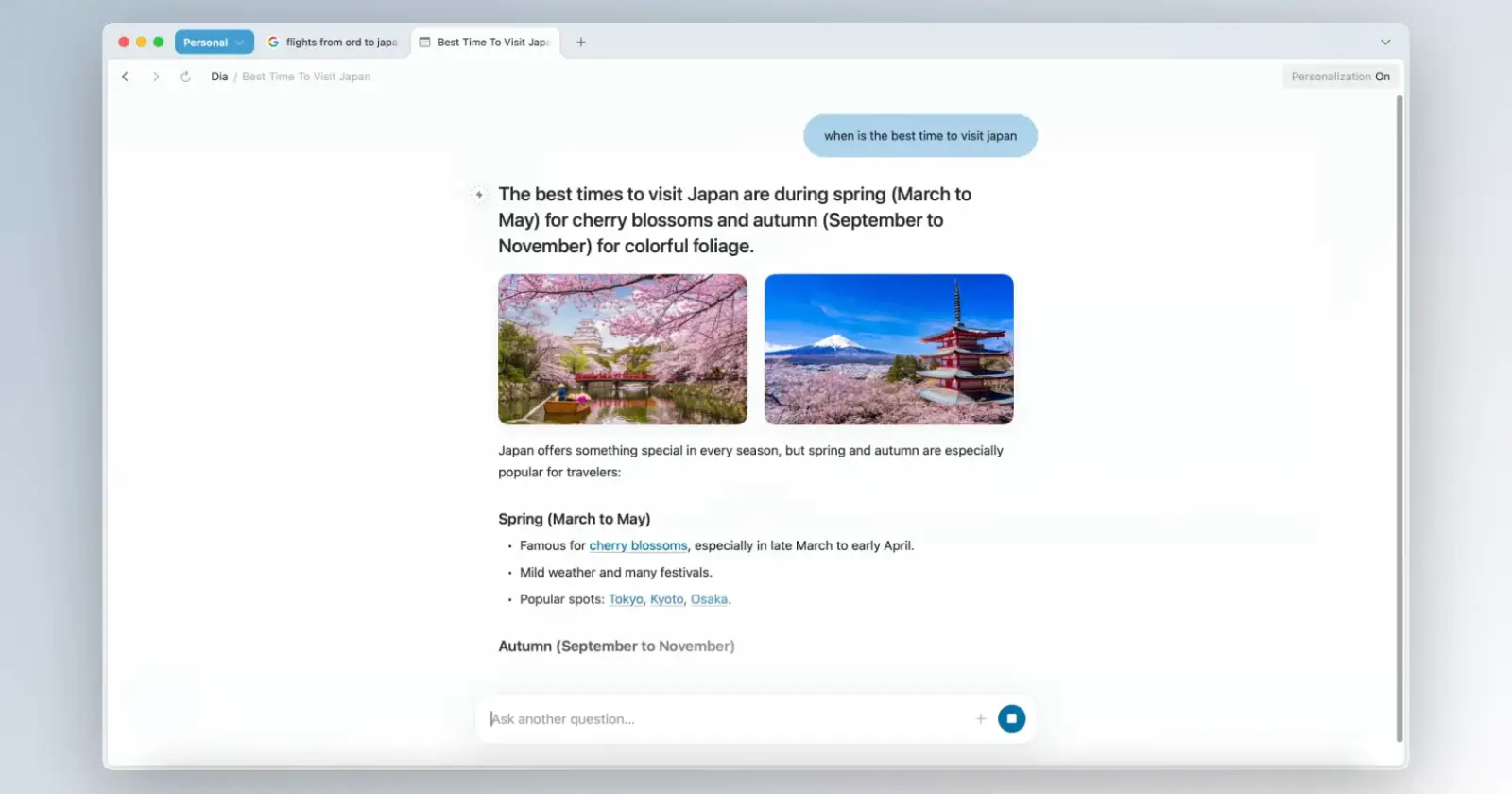The Browser Company just dropped a heartfelt letter addressing the Arc browser community, explaining why it is placing its full weight behind Dia. The note admits that the shift may have looked sudden from the outside but was in fact the result of careful reflection. In the message, Josh Miller, the company’s cofounder, walks readers through what went wrong with Arc, why Dia needed to be a standalone product and what lies ahead for both projects.
Miller begins by owning up to three key mistakes. First, he says the team should have paused Arc development a year earlier once early data on growth and retention made clear its limits. Second, he admits they dragged their feet on embracing AI, even though he was secretly tinkering with ChatGPT late at night. Third, he confesses that their communication was uneven, at times overhyping Dia before details were ready and at others leaving users in the dark. The letter, Miller writes, is an exercise in the truth that “will set you free.”
In recounting Arc’s origins, Miller reminds readers that The Browser Company was founded on the belief that browsers deserved far more attention than they’d been given. Arc was meant to feel like a home rather than a tool. Arc came with some incredibly useful features, some of which that will live on in Dia as we previously noted. That said, Arc’s unique spaces and live folders carried what Miller calls a “novelty tax.” Data showed that only a handful of users ever tried more than one space or calendar preview.
That reality led the team to ask whether Arc could evolve or whether a fresh start was needed. Miller argues that Dia could not simply be grafted onto Arc. Instead, Dia was built from the ground up around three pillars: simplicity, speed and security. He shares that they replaced bloated frameworks with a lean architecture and grew their security team fivefold. Scott Forstall’s metaphor of making a piano instead of a saxophone captures the goal of hiding complexity behind something anyone can learn.
The letter also tackles another question on everyone’s mind: will Arc be open sourced? The short answer is not yet. Arc lives on a custom internal SDK called ADK that powers Dia as well. Sharing Arc in a meaningful way would require open sourcing ADK too. Miller leaves the door open for the future, but cautions that doing so today could put the company’s secret sauce at risk.
With all that behind them, The Browser Company turns its full attention to Dia. The letter insists this is the moment for an “electric intelligence” leap in how we use software. Miller compares traditional browsers to candles and Dia to electric light. He believes that AI chat interfaces and web pages will merge. In his view, the most powerful interface will be one that blends both worlds.
Miller closes by acknowledging the gamble. He says he does not know whether Dia will win but stresses that the team is giving it everything they have. Arc will remain maintained for stability but no longer sees feature-driven growth as the path forward. For Arc members eager to try the next chapter, the team will open Dia to them next in the alpha phase.
Through the letter Miller makes clear that the company’s north star — an “Internet Computer” that shapes how we work and live — remains unchanged. It is simply a new path to that vision, one powered by AI and built to reach far beyond what Arc could. While many Arc browser fans were not thrilled by the pivot, today’s letter shows the team believes it is the only way to fulfill its original dream.
TechIssuesToday primarily focuses on publishing 'breaking' or 'exclusive' tech news. This means, we are usually the first news website on the whole Internet to highlight the topics we cover daily. So far, our stories have been picked up by many mainstream technology publications like The Verge, Macrumors, Forbes, etc. To know more, head here.


